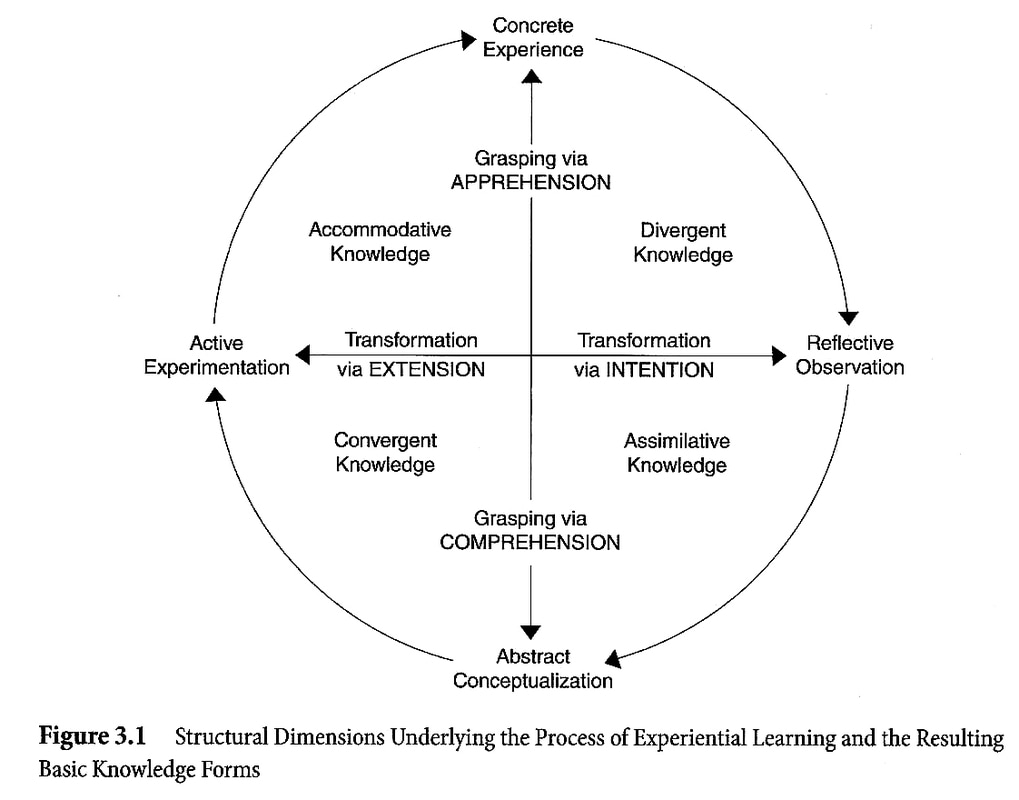A large part of my Ph.D. dissertation research will involve exploration of the ways that college students and instructors define experiential learning. As a foundation, here are two definitions from well-known researchers.
James W. Gentry
"Experiential learning is participative, interactive, and applied. It allows contact with the environment, and exposure to processes that are highly variable and uncertain. It involves the whole-person; learning takes place on the affective and behavioral dimensions as well as on the cognitive dimension" (Gentry, 1990, p. 20).
David A. Kolb
"The process whereby knowledge is created through the transformation of experience. Knowledge results from the combination of grasping and transforming experience” (Kolb, 1984, p. 41).
Students
How would students define experiential learning? That is one of my research questions. I have conducted pilot studies of students in Singapore and Vietnam that included this question. Here is a sample of the more interesting answers. These quotes are from open-ended question responses from students in a survey that I conducted at a STEM university in Vietnam in early 2016.
"Instead of teaching theory, we will apply it into real life. From doing that, we can verify theory and accumulate experience."
"Experiential learning is learning by doing projects, dealing with topics to understand these topics, maybe with the instruction of lecture if needed."
"Experiential learning is the method that help[s] us to understand the knowledge more deeply through subjects and activities, that will make theory close to reality."
"Learning by participating in activities, understanding by thinking and doing."
"Working in group, setting plan[s], raising ideas, writing content, administrating a project."
In the following excerpt, a student reflected on what might not be experiential learning.
"Experiential learning would NOT include reading your textbook, listening to a lecture, classroom discussions led by your teacher, doing homework, or taking an exam about your text readings or lectures."
Disturbingly, within this group of students in the university STEM program in Vietnam, a student provided this response, "It's nonsense, unrealistic, it's cost [sic] a lot and bring [sic] no benefit to the students. These experiential learning activities are just helpful to a few students."
This leads to a second research question, which is "How do students feel about experiential learning?" I will cover that question in future posts.
The illustration that I shared below the references is from Kolb (2014, p. 68). This figure helps to understand Kolb's definition that I shared above. In future posts, I will return to this figure for discussion of experiential learning cycle.
References
Gentry, J. W. (1990). What is experiential learning? Guide to business gaming and experiential learning. Association for Business Simulation and Experiential Learning (ABSEL).
Kolb, D. A. (1984/2014). Experiential learning: Experience as the source of learning and development (Vol. 1). Englewood Cliffs, NJ: Prentice-Hall.

 RSS Feed
RSS Feed